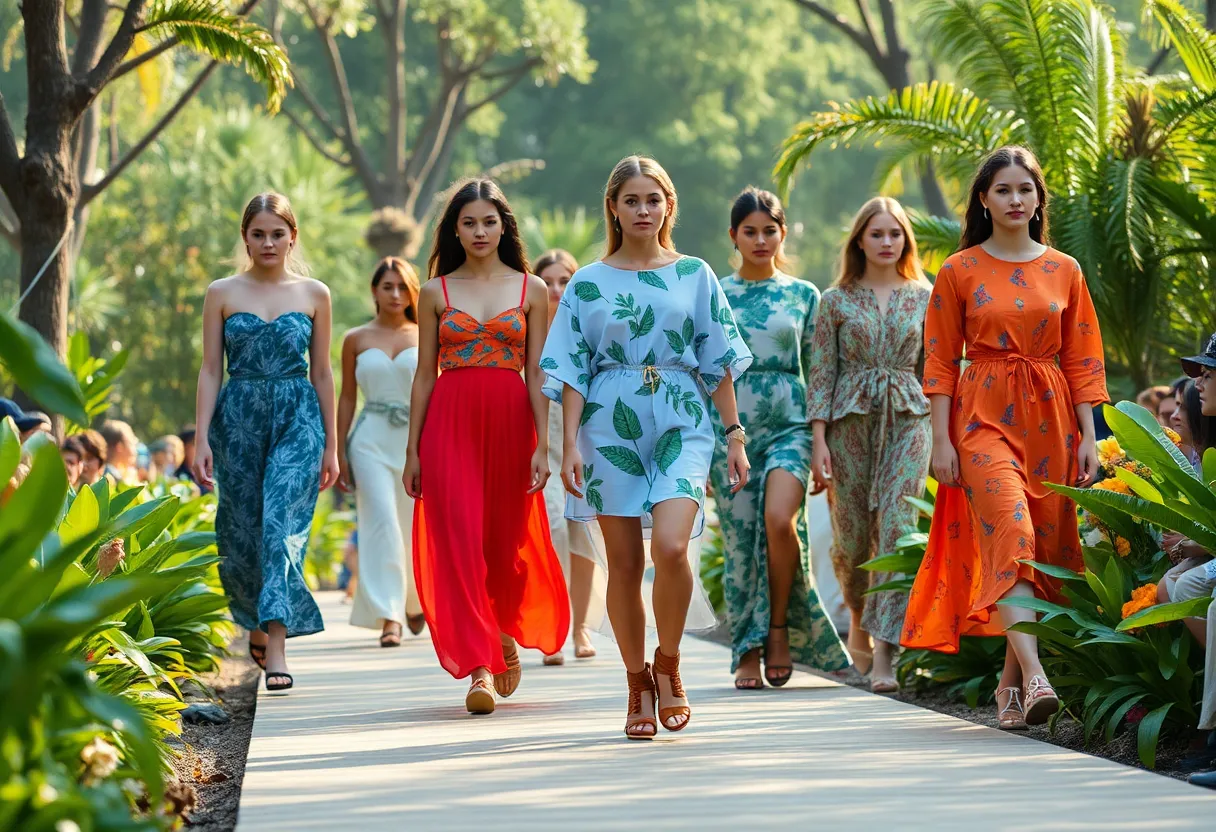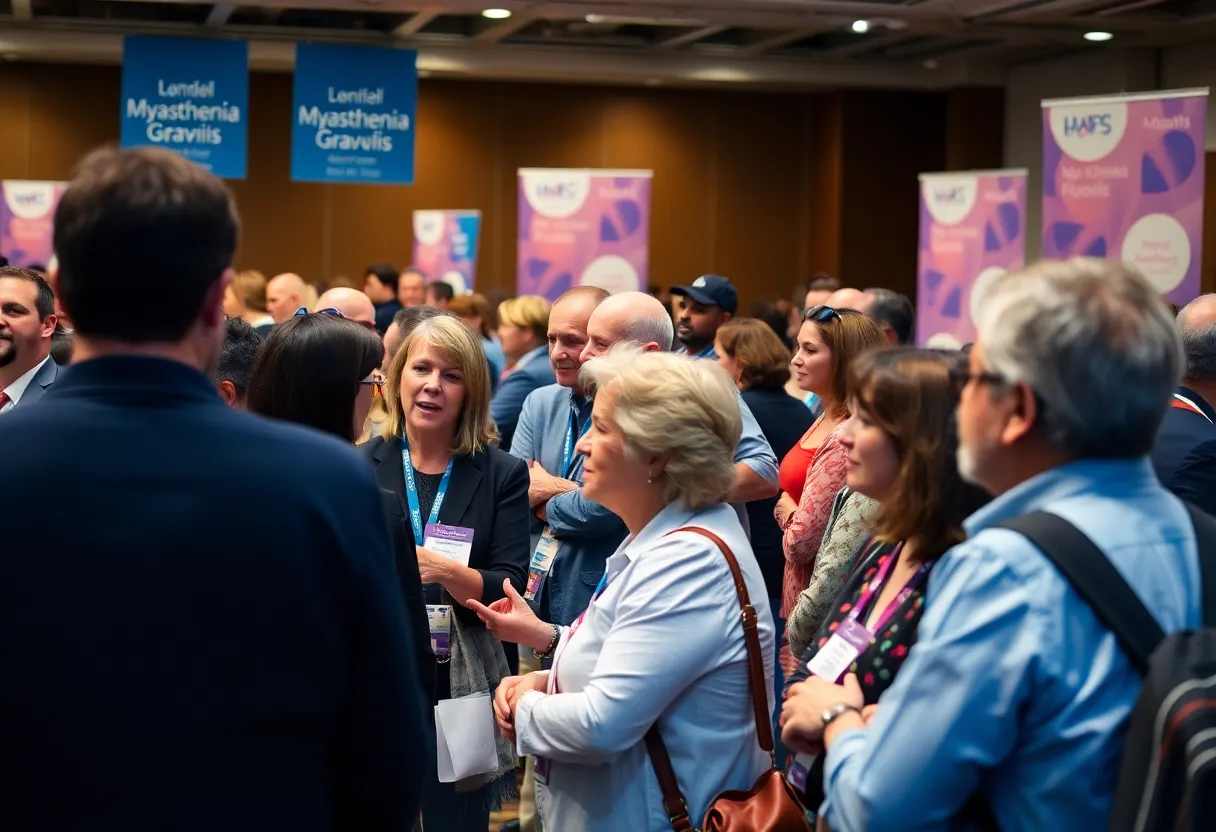News Summary
The fashion industry is grappling with significant sustainability issues, contributing to greenhouse gas emissions and wastewater. While some fashion weeks are embracing eco-friendly practices, the risks of greenwashing remain high. Ethical designers are rising to the occasion, but outdated methods persist. Moving forward, the industry must innovate to ensure a sustainable future.
The Fashion Industry Faces Sustainability Challenges Amidst Greenwashing and Waste Crisis
The fashion industry, a realm known for its dazzling runways and glamorous events, is grappling with a significant issue that dampens its sparkle—sustainability. In fact, it’s reported that the fashion industry accounts for eight percent of total greenhouse gas emissions. This figure paints a stark reality of the enormous carbon footprint left behind by the ever-popular clothing industry.
A Troubling Model
According to the Sustainable Fashion Week UK, the traditional fashion model is not only deeply polluting but also “cannot sustain itself.” This dire situation begs the question: what can we do to turn the tide? With approximately 39,000 tons of clothing dumped annually in the Atacama Desert, one of the driest places on Earth, we’re reminded of the devastating environmental impacts rooted in our fashion choices.
Moreover, the industry is notorious for its excessive water consumption, generating about 20 percent of the world’s wastewater. It’s clear that the environmental toll of fashion not only affects our air but also deeply stretches our water resources.
Excesses of Fashion Weeks
Fashion weeks in major cities like New York, Paris, and Milan have come under fire for their excessive displays. Critics argue that these events are nothing more than spectacular shows of excess, exemplifying pollution and waste. The push for rapid trend changes in fast fashion continues to sow confusion and tempts responsible consumer behaviors out of existence.
A Shift Toward Sustainability
Despite these challenges, a flicker of hope shines through with the emergence of sustainable fashion weeks that prioritize eco-friendly practices. Notably, London Fashion Week and Copenhagen Fashion Week have set out frameworks for sustainability that brands must adhere to. Cecilie Thorsmark, the CEO of Copenhagen Fashion Week, firmly believes that these major events can drive positive change within the industry.
Fashion shows have evolved into platforms not just for showcasing clothes but also for promoting activism. A prime example was fashion designer Vivienne Westwood’s Homo Loquax runway show at London Fashion Week in 2019, focused on environmental advocacy. Yet, some still argue that “sustainable” fashion shows remain trapped in outdated business practices that do little to challenge the status quo.
Rising Costs and Greenwashing
Running a fashion show has become increasingly expensive, with costs skyrocketing from $300,000 to $400,000 for events like New York Fashion Week. In the face of these skyrocketing expenses, the danger of greenwashing looms ever larger. Greenwashing occurs when brands make exaggerated claims about their environmental efforts, leading to skepticism among consumers.
A recent complaint aimed at Copenhagen Fashion Week highlighted low sustainability standards and a lack of enforcement, raising alarm bells over the true nature of “sustainable” fashion.
The New Wave of Ethical Fashion
On the brighter side, some ethical designers, like Gabriela Hearst, are making bold moves, although with controversy. At Paris Fashion Week, she debuted a mink coat made from repurposed python skins, prompting discussions on what constitutes ethical fashion. Meanwhile, brands like Stella McCartney are steadfast in their commitment to eco-friendly practices, reflecting a growing awareness of environmental responsibility.
Fashion weeks in places such as Costa Rica, São Paulo, and Lagos are also leading the charge by focusing on eco-friendly designs and slow fashion, promoting local craftsmanship while showcasing cultural diversity. These events are creating a new narrative in the industry; one that is more conscious and considerate of the environment.
A Cultural Renaissance and Changing Markets
As economic pressures mount, luxury brands face the heat to innovate their marketing strategies amid declining sales. The rising cost of living has significantly impacted consumer spending on luxury goods. However, we are witnessing a cultural renaissance in Africa, attracting global brands looking to tap into evolving fashion trends.
Interestingly, the secondhand luxury market is also projected to grow, gaining traction among consumers who are seeking more sustainable options. As brands adapt to the dual presence of traditional and digital marketing channels, they must be vigilant to capture diverse audiences. Collaborations with influencers and cultural figures have become a crucial strategy for luxury brands aiming to stay relevant in this rapidly changing ecosystem.
In a notable example of blending styles, the impending launch of the NikeSkims collaboration is set to merge activewear and high fashion, targeting a broader audience. This illustrates yet another way the industry is evolving to meet modern demands while considering environmental impacts.
The path forward for fashion is undoubtedly complex. With the push for sustainability requiring a complete overhaul of outdated practices, designers, brands, and consumers must work together to ensure a brighter, more eco-friendly future for the industry.
Deeper Dive: News & Info About This Topic
HERE Resources
Forever 21 Files for Chapter 11 Bankruptcy Again
10 Modern Kitchen Designs to Inspire Your Next Remodel
Barbie Movie Inspires Brands to Connect with Consumers in New Ways
Relocation of Homeless Individuals in New Orleans Ahead of Super Bowl
Coca-Cola Takes Bold Steps Towards Innovation and Sustainability
The Shifting Sands of E-commerce: Major Changes Ahead by 2025
Exciting Innovations and Leadership Changes in Household and Personal Care Sector
Additional Resources
- McGill Daily: Marketing Sustainability and Greenwashing in Fashion Weeks
- Wikipedia: Fashion Industry
- OpenPR: Online Fashion Retail Market Insights
- Business Insider: Luxury Fashion Marketing Strategies
- Ecotextile: US Secondhand Fashion Market Growth
- Encyclopedia Britannica: Sustainability








